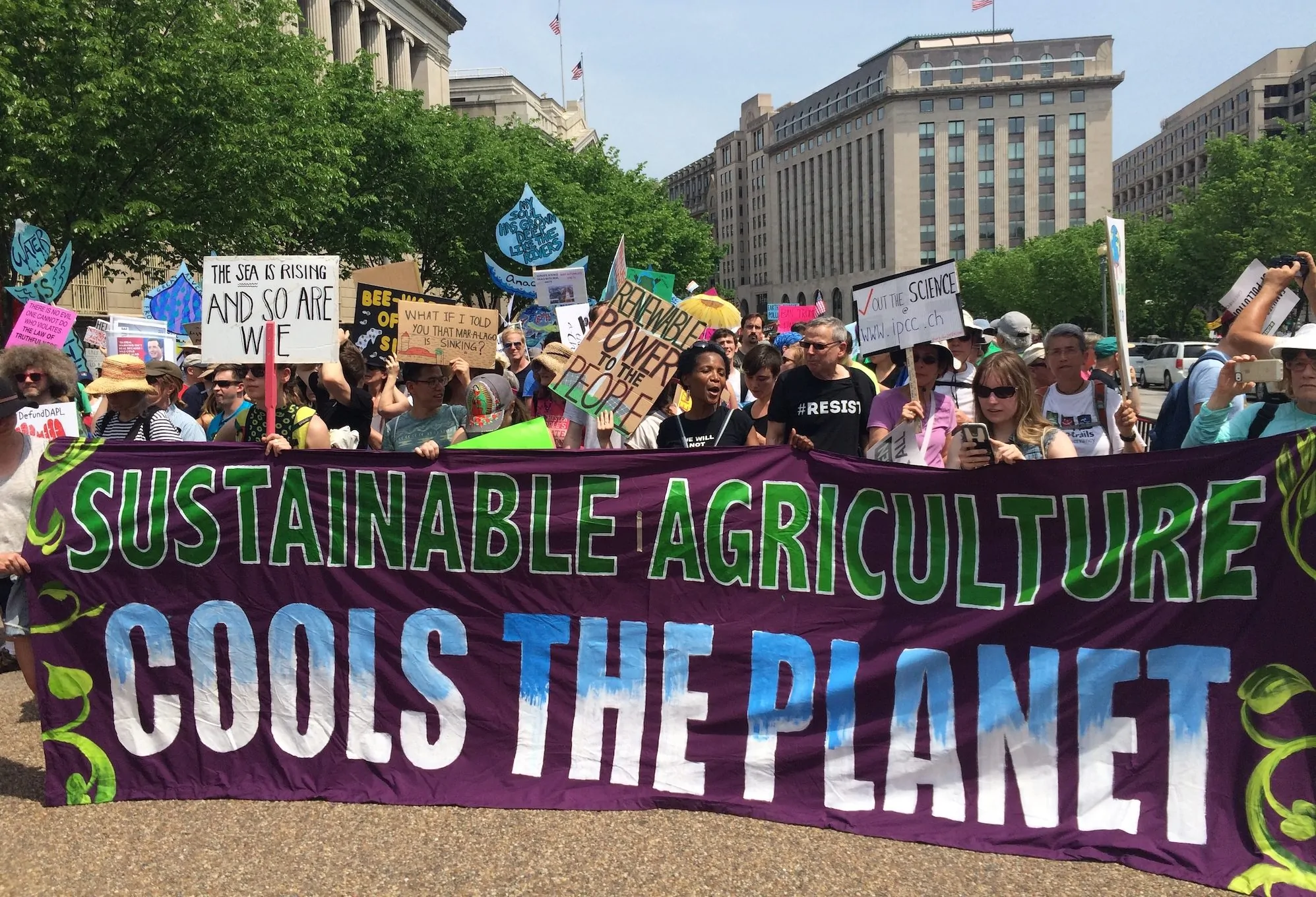For decades, rural peoples movements of peasant farmers, indigenous people, pastoralists, and fisherfolk (to name a few) have organized at the global level for a new food system based around the concepts of the human right to food, food sovereignty, and agroecology. Working through global coalitions, they have developed these ideas and practices to address the serious problems communities and societies face, and they have fought for political space at the global level in the United Nations to make these ideas into policy that can “scale up” and “scale out” these solutions.
Now, as communities reel from shocks due to the COVID-19 pandemic and the increasing impacts of climate change, the need for a new system based on agroecology, food sovereignty, and the right to food is undeniable.
Increasingly, grassroots movements and frontline communities from North America are joining the global fight for agroecology and food sovereignty, bringing local struggles into global policy spaces and confronting the US and Canadian governments for failing to ensure the right to food. Joining global movements and intervening in global policy, in turn, strengthens grassroots activism and builds solidarity.
Action Aid USA thanks the individuals who lent their voices and experiences to “Food Connects Us All” Grassroots Voices from North America on the Importance of Building Agroecology, Fighting for Policy, and Joining Global Struggles, and express solidarity with their dedicated work with family farmers and social movements in the US and around the world: Jahi Chappell, Patti Naylor, Blain Snipstal, and Jordan Treakle.
This publication is produced through a grant from the Clarence E. Heller Foundation.
Project coordination: Tristan Quinn-Thibodeau
Interviews and writing: Faris Ahmed, Tristan Quinn-Thibodeau
Reviewers: Alberta Guerra, Tristan Quinn-Thibodeau
Layout/design: Jenna Farineau
Date published: September 2021
Number of pages: 44
